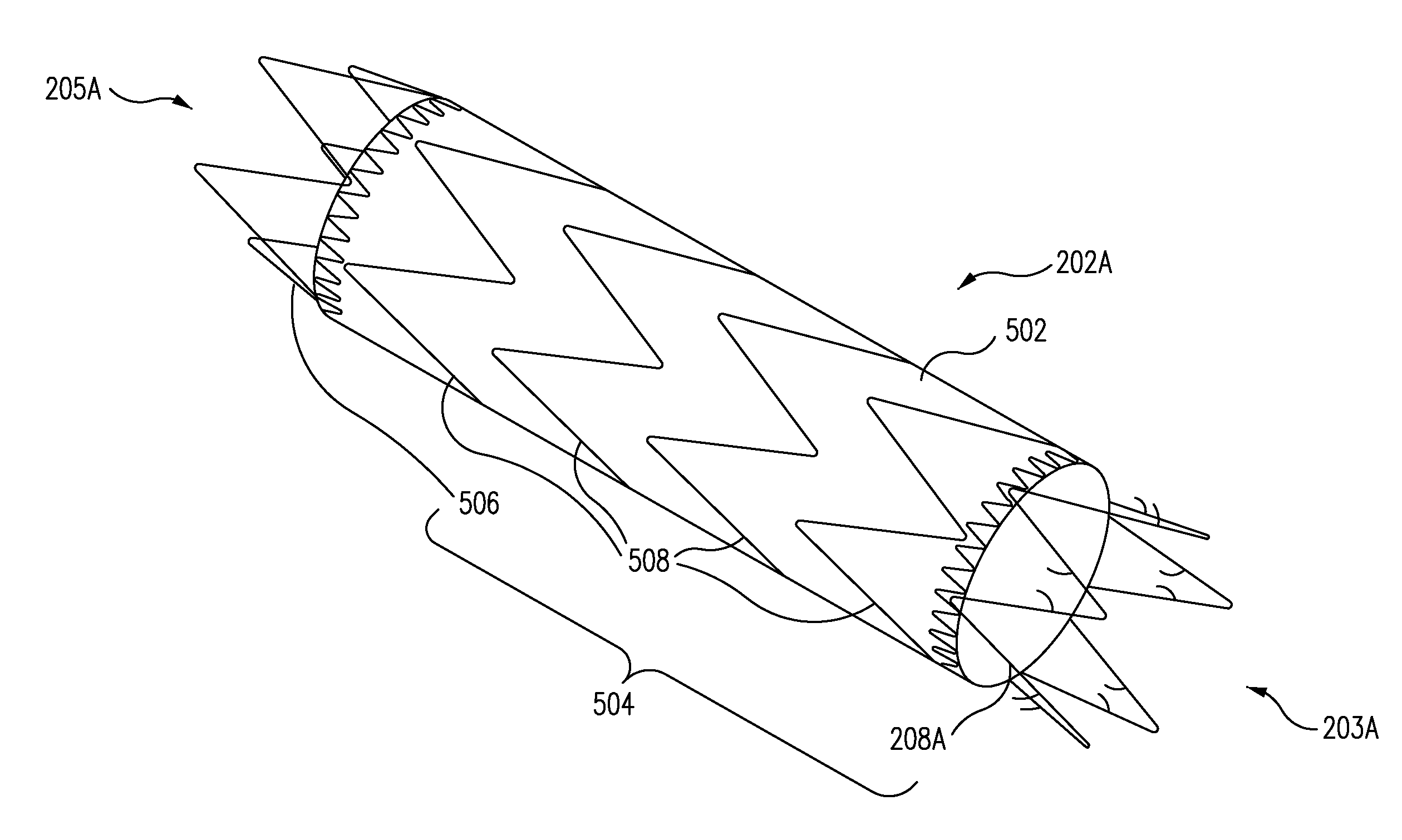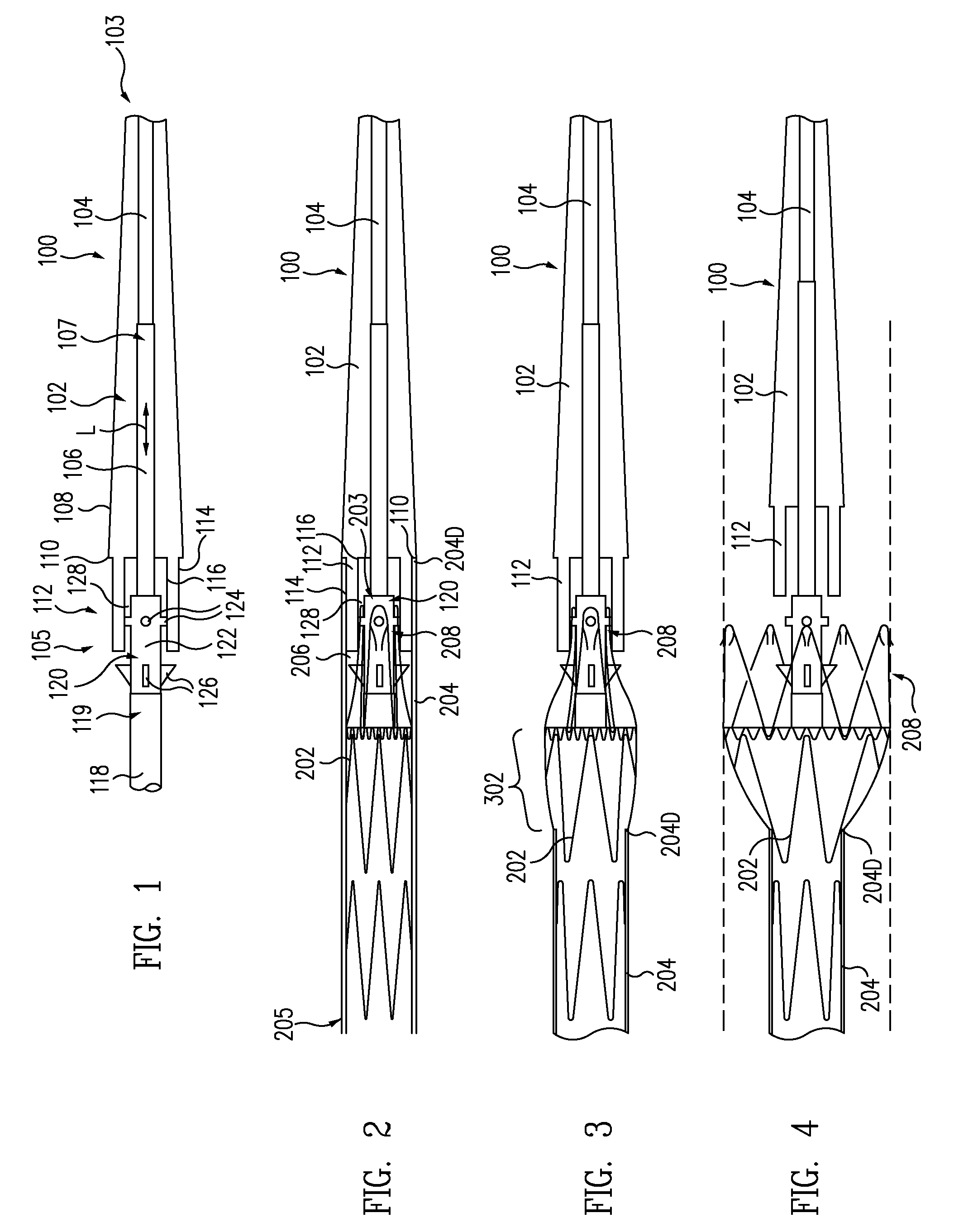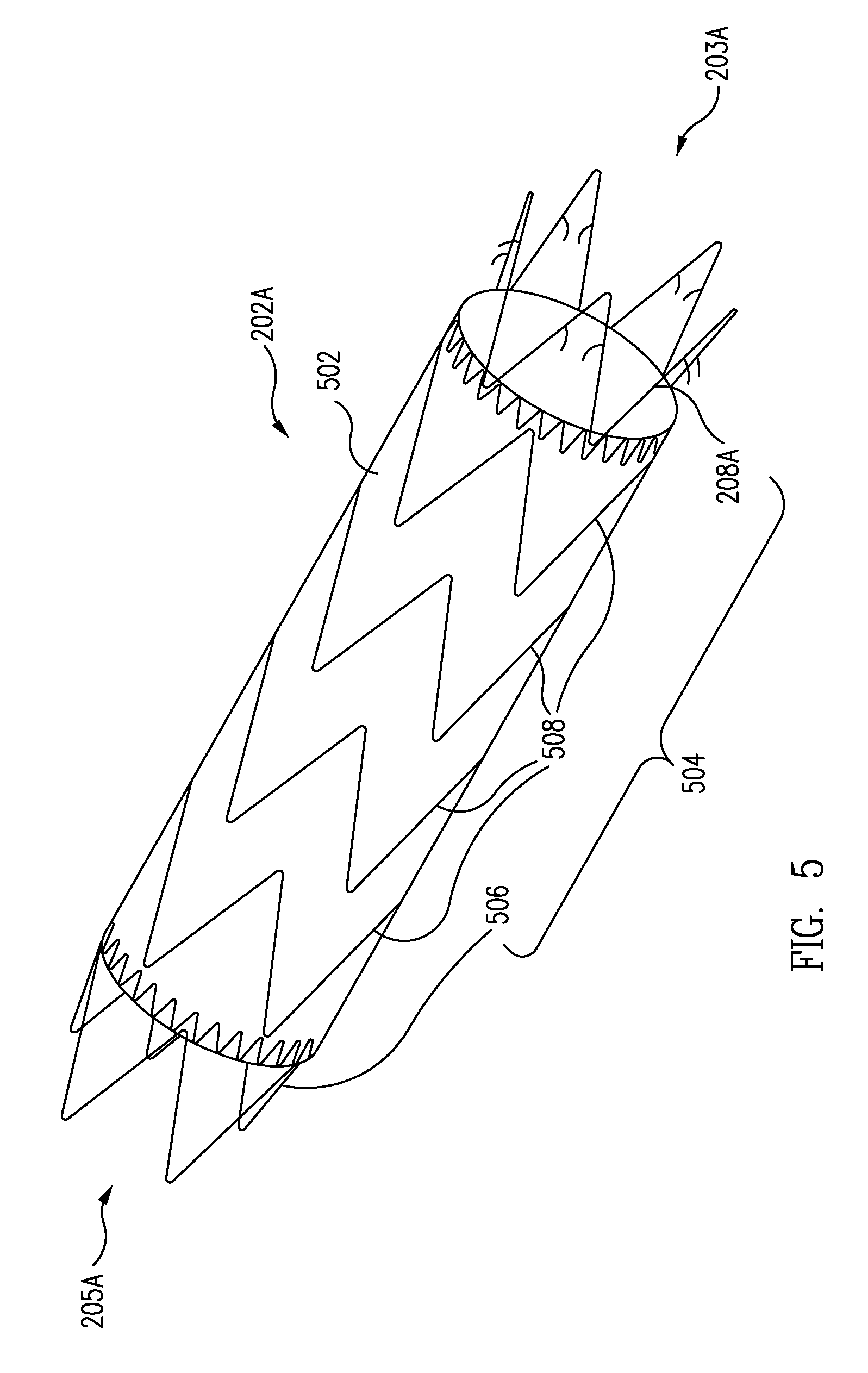Stent-Graft With Anchoring Pins
a technology of anchoring pins and stents, which is applied in the field of deploying stents, can solve the problems of repositioning the stent, down retraction, and room for error in placement, and achieves the effect of avoiding retraction, avoiding retraction, and avoiding retraction
- Summary
- Abstract
- Description
- Claims
- Application Information
AI Technical Summary
Benefits of technology
Problems solved by technology
Method used
Image
Examples
Embodiment Construction
[0042]FIG. 1 is a partial cross-sectional view of a stent-graft delivery system 100 without a stent-graft and outer sheath in accordance with one embodiment. Stent-graft delivery system 100 includes a tapered tip 102 that is flexible and able to provide trackability in tight and tortuous vessels. Tapered tip 102 includes a guidewire lumen 104 therein for connecting to adjacent members and allowing passage of a guidewire through tapered tip 102. Other tip shapes such as bullet-shaped tips could also be used.
[0043]An inner tube 106 defines a lumen, e.g., a guide wire lumen, therein. A distal end 107 of inner tube 106 is located within and secured to tapered tip 102, i.e., tapered tip 102 is mounted on inner tube 106. As shown in FIG. 1, the lumen of inner tube 106 is in fluid communication with guidewire lumen 104 of tapered tip 102 such that a guide wire can be passed through inner tube 106 and out distal end 107, through guidewire lumen 104 of tapered tip 102, and out a distal end 1...
PUM
 Login to View More
Login to View More Abstract
Description
Claims
Application Information
 Login to View More
Login to View More - R&D
- Intellectual Property
- Life Sciences
- Materials
- Tech Scout
- Unparalleled Data Quality
- Higher Quality Content
- 60% Fewer Hallucinations
Browse by: Latest US Patents, China's latest patents, Technical Efficacy Thesaurus, Application Domain, Technology Topic, Popular Technical Reports.
© 2025 PatSnap. All rights reserved.Legal|Privacy policy|Modern Slavery Act Transparency Statement|Sitemap|About US| Contact US: help@patsnap.com



